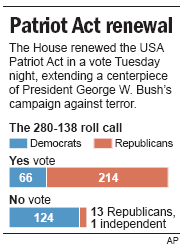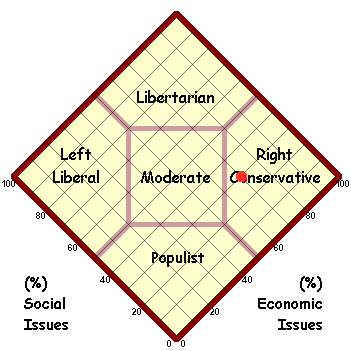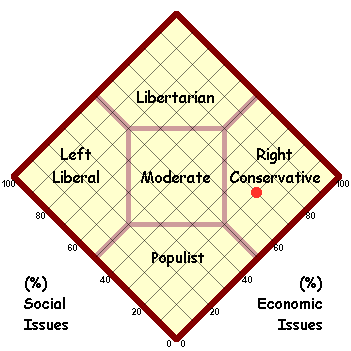Bush is the most conservative president we've had since probably Warren G. Harding.
dear, few would claim he was a conservative and none would claim he controlled the 3 branches of govt the press and electorate. If you're not intelligent enough to be here why are you here?
Yes Bush had such conservative principles as approving massive spending budgets from Congress, instituting a drug program for Medicare that Republicans had resisted for years, pushing the No Child Left Behind bill, and of course USAPATRIOT.
Bigfuckinggreenie doesnt know what the hell he's talking about. Bush was more like Nixon and less like Reagan.





